Richard L. Hasen - The Fraudulent Fraud Squad: Understanding the Battle Over Voter Id: A Sneak Preview from The Voting Wars: From Florida 2000 to the Next Election Meltdown
Here you can read online Richard L. Hasen - The Fraudulent Fraud Squad: Understanding the Battle Over Voter Id: A Sneak Preview from The Voting Wars: From Florida 2000 to the Next Election Meltdown full text of the book (entire story) in english for free. Download pdf and epub, get meaning, cover and reviews about this ebook. year: 2012, publisher: Yale University Press, genre: Politics. Description of the work, (preface) as well as reviews are available. Best literature library LitArk.com created for fans of good reading and offers a wide selection of genres:
Romance novel
Science fiction
Adventure
Detective
Science
History
Home and family
Prose
Art
Politics
Computer
Non-fiction
Religion
Business
Children
Humor
Choose a favorite category and find really read worthwhile books. Enjoy immersion in the world of imagination, feel the emotions of the characters or learn something new for yourself, make an fascinating discovery.
- Book:The Fraudulent Fraud Squad: Understanding the Battle Over Voter Id: A Sneak Preview from The Voting Wars: From Florida 2000 to the Next Election Meltdown
- Author:
- Publisher:Yale University Press
- Genre:
- Year:2012
- Rating:5 / 5
- Favourites:Add to favourites
- Your mark:
The Fraudulent Fraud Squad: Understanding the Battle Over Voter Id: A Sneak Preview from The Voting Wars: From Florida 2000 to the Next Election Meltdown: summary, description and annotation
We offer to read an annotation, description, summary or preface (depends on what the author of the book "The Fraudulent Fraud Squad: Understanding the Battle Over Voter Id: A Sneak Preview from The Voting Wars: From Florida 2000 to the Next Election Meltdown" wrote himself). If you haven't found the necessary information about the book — write in the comments, we will try to find it.
A Letter from Author Richard L. Hasen
In 2000, the U.S. presidential election went into overtime as just a few hundred votes, out of millions cast, separated Republican George W. Bush from Democrat Al Gore in the state of Florida, whose twenty-five electoral votes determined the nations next president. For thirty-six days, the country was riveted and divided between Democrats and Republicans as the election went into overtime. Election contests, recounts, and almost two dozen lawsuits culminated in one of the most controversial Supreme Court decisions in U.S. history, Bush v. Gore. Everything related to the election controversy went under the microscope, from the varieties of election machinery, to the rules for vote-counting, to the poor drafting of Floridas election statutes, to the partisan officials involved in the recount, to the role of the courts in resolving election disputes. Calls for reform came from everywhere, including the Supreme Court.
If you think that nearly a dozen years later the country would have fixed its problems with how we run our elections, youd be dead wrong.
Since Florida we have witnessed a partisan war over election rules. The number of election-related lawsuits has more than doubled, and election time brings out inevitable accusations by political partisans of voter fraud and voter suppression. These allegations have shaken public confidence, as campaigns deploy armies of lawyers and the partisan press revs up whenever elections are expected to be close and the stakes are high.
We are just one razor-thin presidential election away from chaos and an undermining of the rule of law. In summer 2012, Yale University Press will publish my book, The Voting Wars: From Florida 2000 to the Next Election Meltdown, looking at these questions: How did we get here? Why havent things improved since 2000? How has the rise of the Internet and social media made the potential for a catastrophic electoral meltdown much worse? But the book wont be out until this summer, and the public is hearing a lot of informationand misinformationnow about states adopting new, tough voter identification wars. The Fraudulent Fraud Squad: Understanding the Battle over Voter ID presents an excerpt from The Voting Wars for readers who want to get an immediate handle on the partisan fight over these controversial new voting requirements. Are they really needed to prevent fraud? Will they suppress the votes of thousands of Democratic voters? The answers might surprise you.
Richard L. Hasen: author's other books
Who wrote The Fraudulent Fraud Squad: Understanding the Battle Over Voter Id: A Sneak Preview from The Voting Wars: From Florida 2000 to the Next Election Meltdown? Find out the surname, the name of the author of the book and a list of all author's works by series.

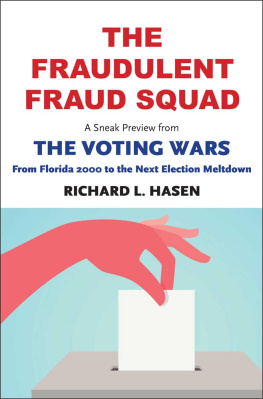
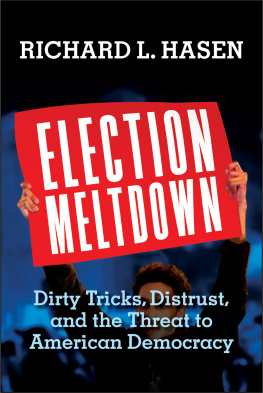

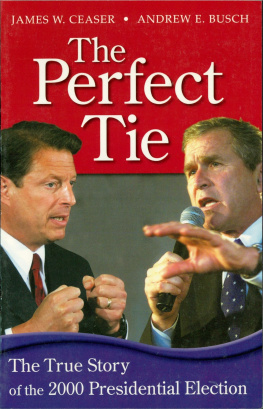
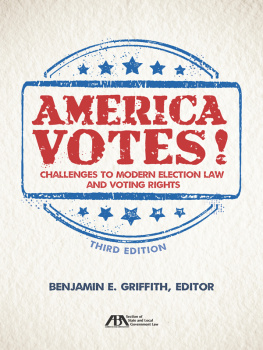
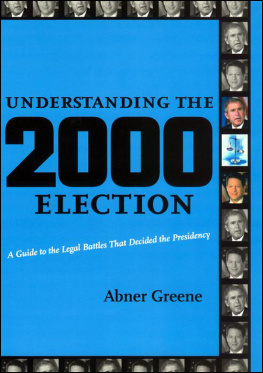
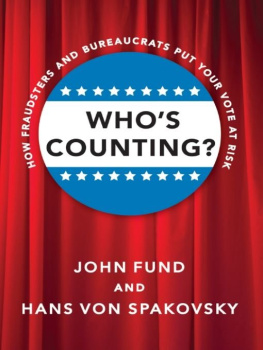
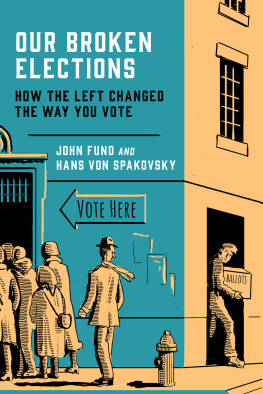
![T. H. Logwood - Voter Fraud and the 2020 Presidential Election; “Joe Biden wins by a Miraculous Landslide” [with appendices]](/uploads/posts/book/259666/thumbs/t-h-logwood-voter-fraud-and-the-2020.jpg)